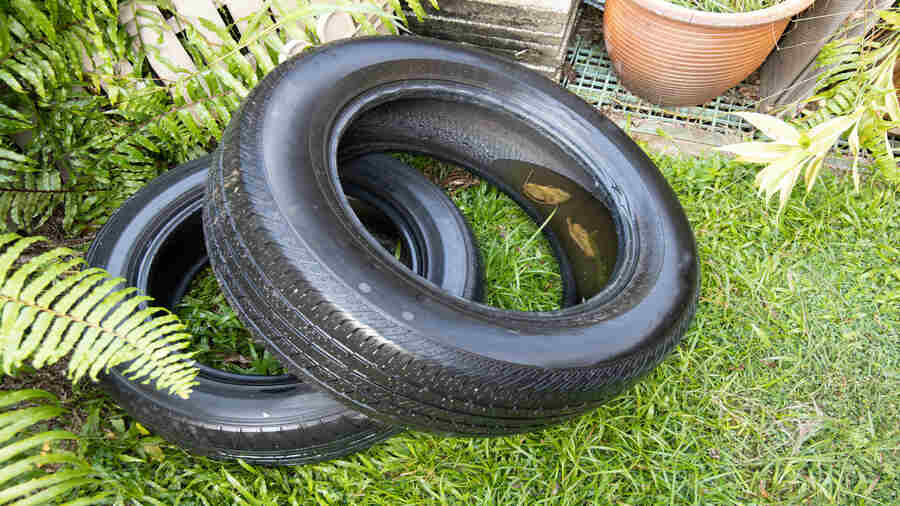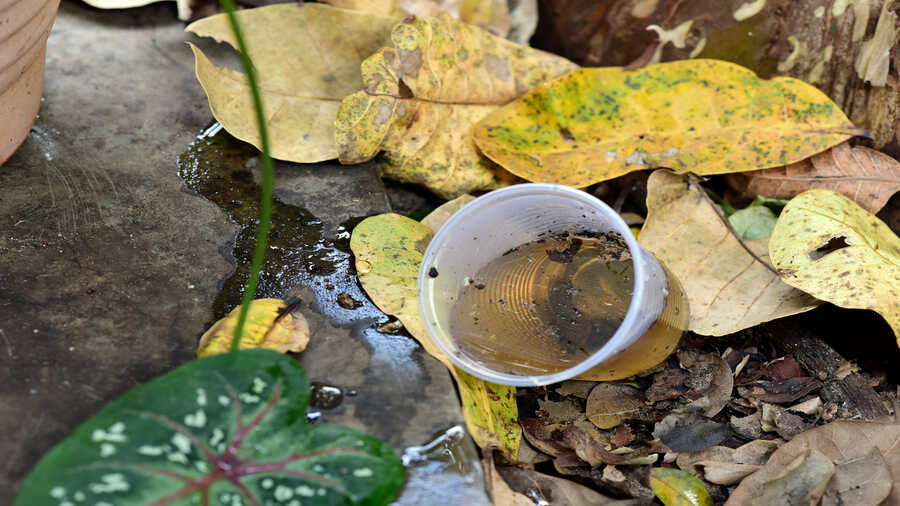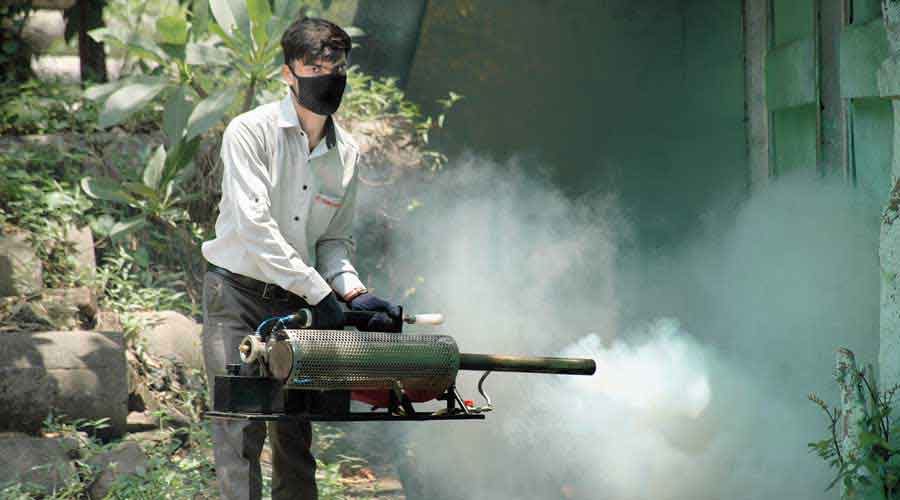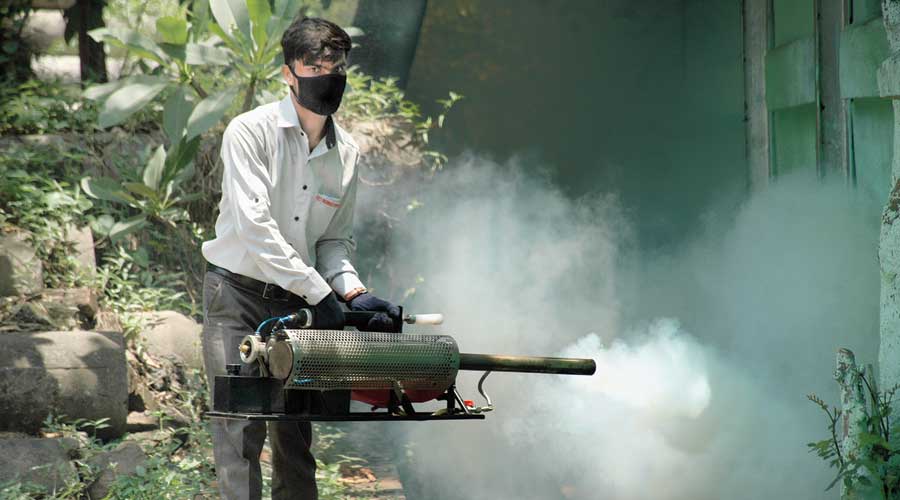Officials of the South Dum Dum municipality broke open at least five locked properties in Yogipara, Bapuji Colony and Satgachi on Monday while out on a drive to spray larvicide with several pockets continuing to register dengue cases.
The move comes 10 days after 16-year-old Sayan Halder, a resident of Amtala of Ward 10 of the South Dum Dum Municipality, died after testing positive for dengue at RG Kar Medical College and Hospital.
Health department officials said as many as 43 dengue cases have been registered across 35 wards of the municipality and 24 of the patients have been hospitalised.
The clean-up drive began around 10.30am when a team of officials from the civic body, with police in tow, turned up at some of the properties whose gates were locked.
The team broke open the locks to enter.
“The owners were sent notices thrice but they did not respond. So, we had to break open the gates to enter the premises,” said a senior official of the South Dum Dum municipality.
“The old locks have been replaced with new ones. The owners can furnish relevant documents and collect the keys for the new locks,” the official said.
Health department officials said dengue cases were being reported across several parts of Baranagar, Dum Dum, Baguihati, Lake Town, and Kamarhati along the northern fringes of the city.
A section of residents of South Dum Dum alleged that not enough cleaning was being done to ensure the localities remained cleared of stagnant water, an ideal breeding ground for Aedes aegypti mosquitoes.
“There is no denying that the number of dengue positive cases is increasing amid efforts by the civic officials,” said Pachu Gopal Roy, former chairman of the municipality. Senior officials of the South Dum Dum civic body said a clean-up drive followed by larvicide spraying was conducted across several apartment complexes just ahead of Durga Puja in South Dum Dum.
“Awareness among people is still missing,” the official said.
Public health experts said the Aedes aegypti mosquito, the prime vector of the dengue virus, could breed in a pool of water that remains undisturbed for at least seven days.
The mosquito can breed in the water that collects in small containers such as earthen and paper cups and the mosquito picks up the virus when it bites an infected person.



